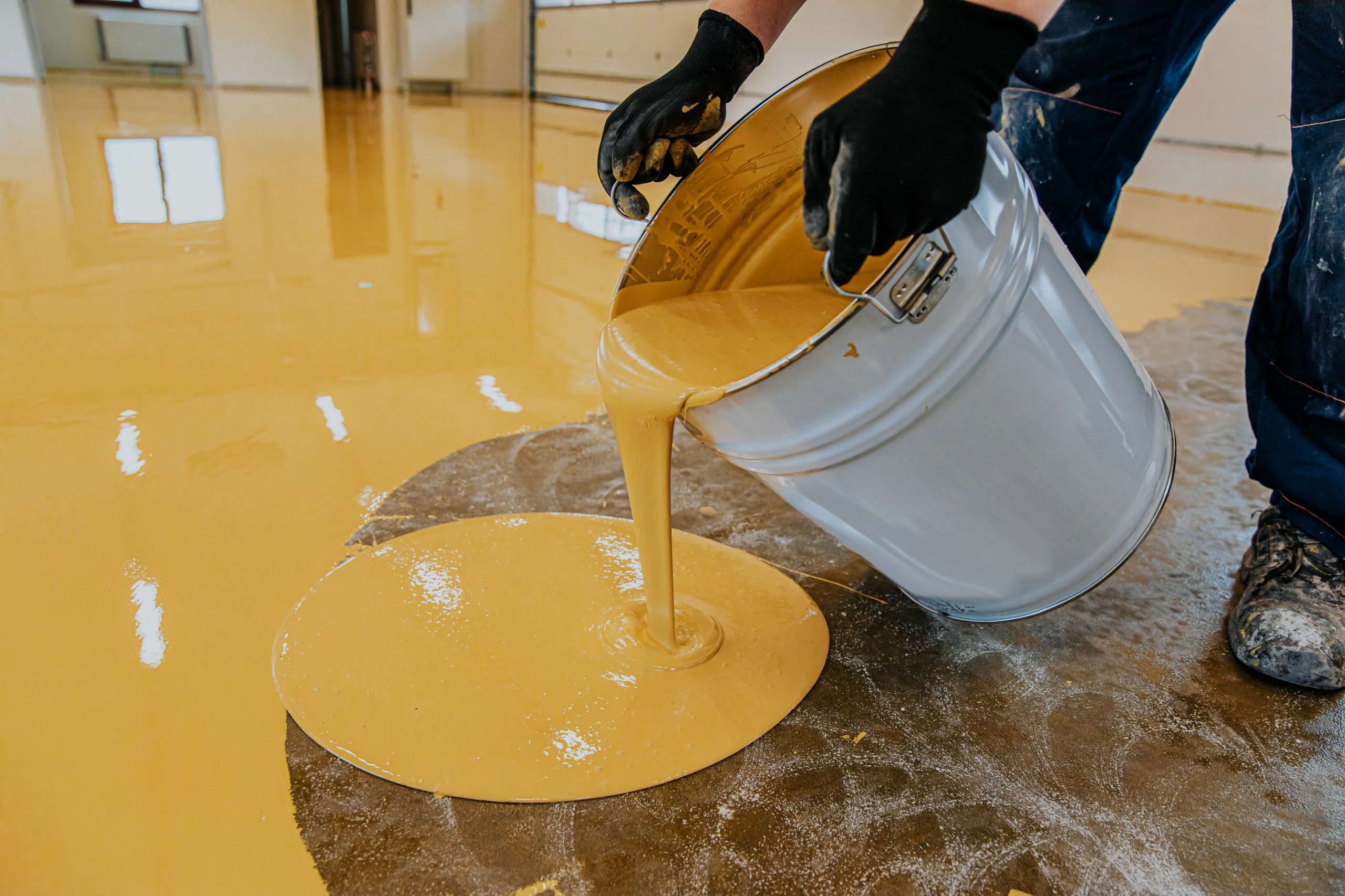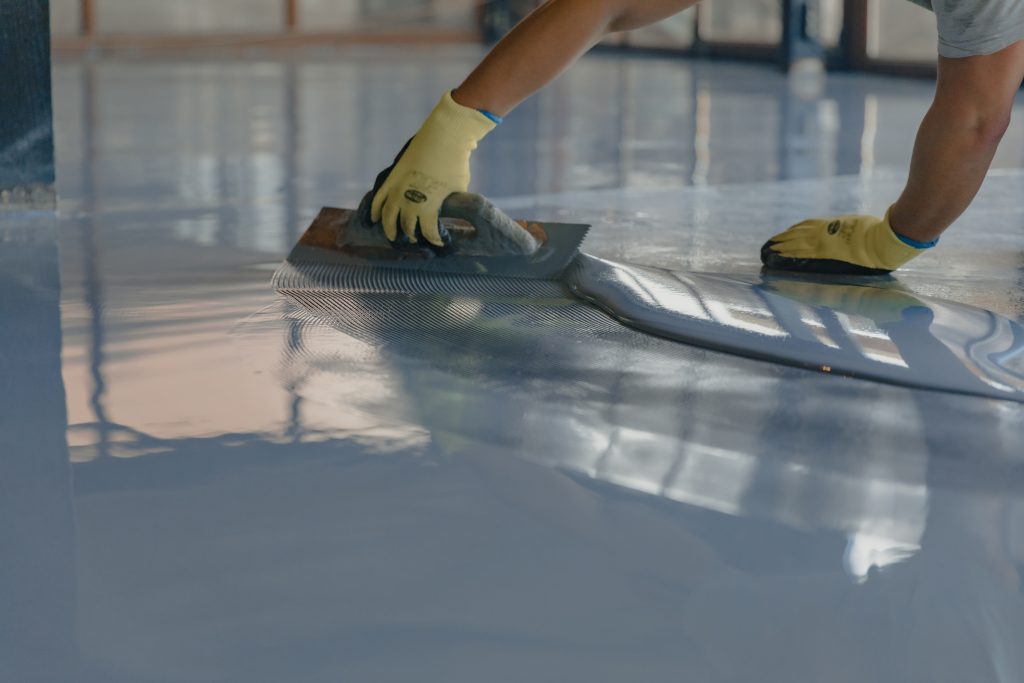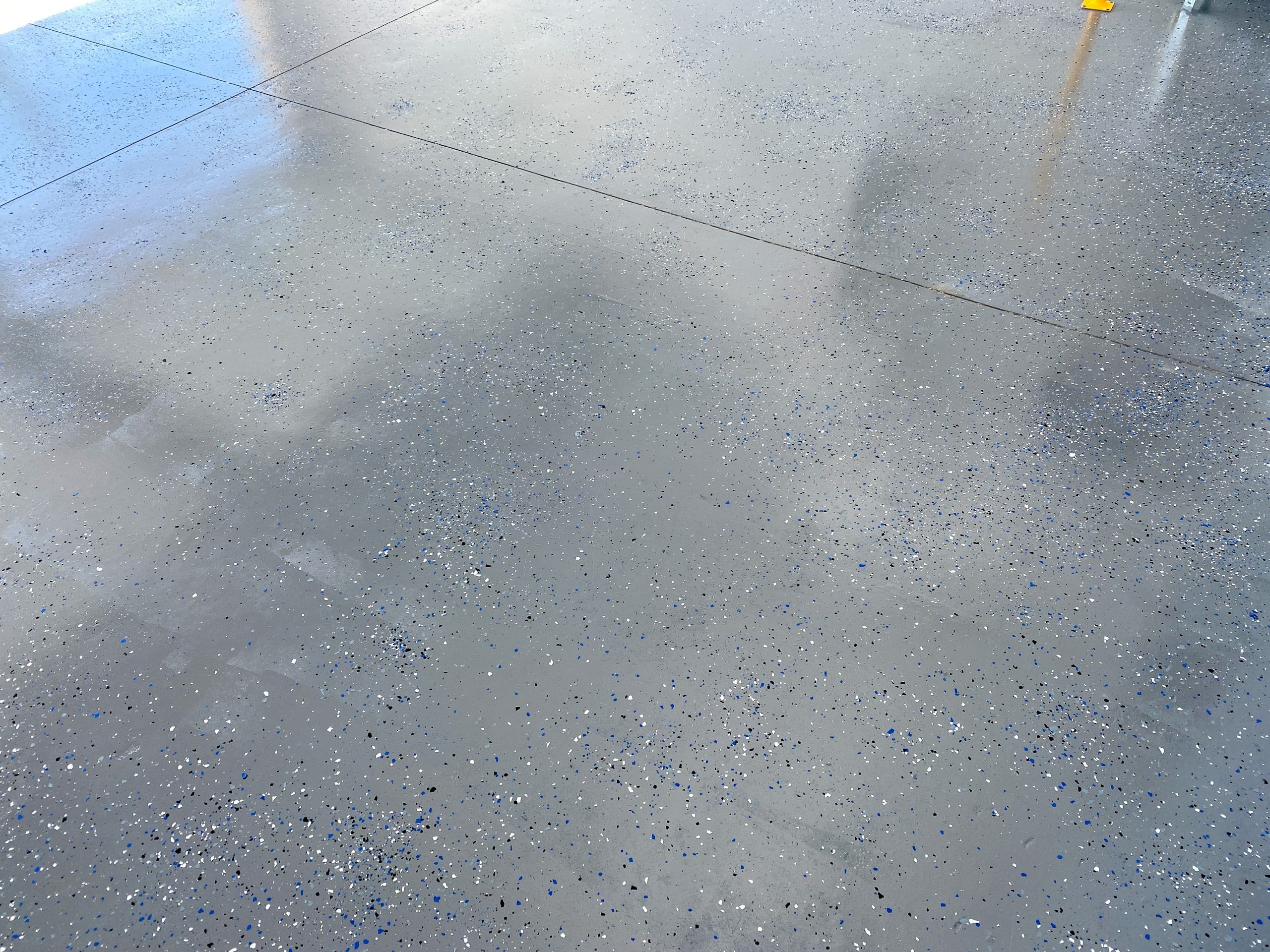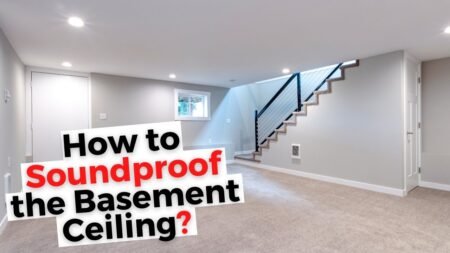Epoxy flooring has emerged as a popular choice for both residential and commercial spaces, and for good reason. This durable and versatile flooring solution is created by mixing resin and hardener, resulting in a strong, long-lasting surface that can withstand heavy foot traffic and various environmental conditions. As we explore the world of epoxy basement floors, we find that it offers not only functionality but also aesthetic appeal, making it an ideal option for a variety of applications, particularly in basements.
In recent years, the demand for epoxy flooring has surged, driven by its numerous advantages over traditional flooring materials. From its resistance to stains and chemicals to its ease of maintenance, epoxy flooring presents a compelling case for homeowners looking to enhance their spaces. As we delve deeper into the benefits and considerations surrounding epoxy flooring, we will uncover why it has become a favored choice for many, especially in areas like basements that often face unique challenges.
Main Points
- Epoxy flooring is a durable and versatile option for basements, offering a seamless and easy-to-clean surface.
- Benefits of epoxy flooring for basements include resistance to moisture, chemicals, and stains, as well as its ability to improve the overall appearance of the space.
- Preparing your basement for epoxy flooring involves thorough cleaning, repairing any existing damage, and ensuring proper ventilation during installation.
- When choosing the right epoxy flooring for your basement, consider factors such as the level of foot traffic, desired aesthetics, and any specific performance requirements.
- The installation process of epoxy flooring involves surface preparation, application of the epoxy coating, and a curing period before the floor is ready for use.
Benefits of Epoxy Flooring for Basements
Moisture Resistance
Basements are notorious for being damp and prone to water damage, but epoxy flooring creates a seamless barrier that prevents moisture from seeping through. This characteristic not only protects the flooring itself but also helps maintain a healthier environment by reducing the risk of mold and mildew growth.
Durability and Strength
In addition to moisture resistance, epoxy flooring is incredibly durable. It can withstand heavy loads and impacts, making it an excellent choice for basements that may serve as storage areas or workshops. Unlike traditional flooring options that may crack or warp under pressure, epoxy maintains its integrity over time.
Easy Maintenance
Furthermore, its easy-to-clean surface means that spills and stains can be wiped away effortlessly, allowing us to keep our basements looking pristine with minimal effort.
Preparing Your Basement for Epoxy Flooring

Before we can enjoy the benefits of epoxy flooring, proper preparation of the basement is essential. The first step involves assessing the current condition of the floor. We need to check for any cracks, holes, or imperfections that may need repair before applying the epoxy.
Addressing these issues ensures a smooth and even surface for the epoxy application, which is crucial for achieving optimal results. Once we have repaired any damage, the next step is to thoroughly clean the basement floor. This process typically involves removing any dust, dirt, grease, or old coatings that may interfere with the adhesion of the epoxy.
We may need to use a concrete grinder or a floor scrubber to achieve a clean surface. Additionally, it’s important to allow the floor to dry completely before proceeding with the installation. Taking these preparatory steps seriously will set the stage for a successful epoxy flooring project.
Choosing the Right Epoxy Flooring for Your Basement
| Factors to Consider | Options |
|---|---|
| Moisture Resistance | Epoxy with moisture barrier |
| Durability | High solids epoxy |
| Chemical Resistance | Chemical resistant epoxy |
| Slip Resistance | Textured epoxy |
| Color Options | Pigmented epoxy |
With various types of epoxy flooring available on the market, selecting the right one for our basement can feel overwhelming. We must consider factors such as the intended use of the space, our budget, and our aesthetic preferences. For instance, if our basement will be used as a workshop or garage, we might opt for a thicker epoxy coating that offers enhanced durability and resistance to chemicals.
Moreover, we should also think about the finish we desire. Epoxy flooring comes in a range of colors and finishes, from glossy to matte. A glossy finish can create a sleek and modern look while also reflecting light and making the space feel larger.
On the other hand, a matte finish may provide a more subdued appearance that complements rustic or traditional decor. By carefully considering these factors, we can choose an epoxy flooring solution that aligns with our vision for our basement.
Installation Process of Epoxy Flooring
The installation process of epoxy flooring is a critical phase that requires attention to detail and precision. After preparing the basement floor and selecting the appropriate epoxy product, we can begin by mixing the resin and hardener according to the manufacturer’s instructions. It’s essential to follow these guidelines closely to ensure proper curing and adhesion.
Once mixed, we can start applying the epoxy using a roller or squeegee. It’s advisable to work in sections to maintain control over the application process. As we spread the epoxy evenly across the floor, we should be mindful of any bubbles or imperfections that may arise.
If necessary, we can use a brush to touch up edges or corners where the roller may not reach effectively. After applying the first coat, we must allow it to cure fully before adding additional layers or finishes. This patience during installation will pay off in terms of durability and appearance.
Maintenance and Care of Epoxy Flooring in Basements
Easy Cleaning Routine
Once our epoxy flooring is installed, maintaining its appearance and functionality becomes paramount. One of the most appealing aspects of epoxy flooring is its low maintenance requirements.
Deeper Cleaning Methods
For deeper cleaning, we can use a mild detergent mixed with water and a mop to keep the surface looking fresh.
Addressing Spills and Stains
It’s also essential to address spills promptly to prevent staining or damage. While epoxy is resistant to many substances, allowing spills to sit for extended periods can lead to discoloration or deterioration of the finish.
Long-Term Benefits
By adopting these simple maintenance practices, we can ensure that our basement remains an inviting space for years to come.
Design and Customization Options for Epoxy Flooring
One of the most exciting aspects of choosing epoxy flooring is the wide array of design and customization options available to us. We can select from various colors, patterns, and finishes to create a unique look that reflects our personal style. For instance, we might choose a solid color for a sleek and modern appearance or opt for decorative flakes or metallic finishes for added visual interest.
Additionally, we can incorporate logos or designs into our epoxy flooring if we want to make a bold statement or personalize our space further. This level of customization allows us to transform our basements into functional yet aesthetically pleasing areas that align with our vision. Whether we prefer a contemporary look or something more traditional, there’s an epoxy flooring solution that can meet our needs.
Hiring a Professional for Epoxy Flooring Installation
While some homeowners may feel confident in their ability to install epoxy flooring themselves, hiring a professional can often yield superior results. Professionals bring expertise and experience to the table, ensuring that every step of the process is executed correctly. From proper surface preparation to precise application techniques, their knowledge can help us avoid common pitfalls that could compromise the integrity of our flooring.
Moreover, professionals typically have access to high-quality materials and tools that may not be readily available to DIY enthusiasts. This access can lead to a more polished finish and longer-lasting results. Ultimately, while DIY projects can be rewarding, enlisting the help of professionals can save us time and stress while ensuring that our epoxy flooring installation is completed efficiently and effectively.
In conclusion, as we explore the world of epoxy flooring for basements, it becomes clear that this versatile solution offers numerous benefits ranging from durability and moisture resistance to aesthetic appeal and customization options. By understanding how to prepare our basements properly, choose the right products, and maintain our floors effectively, we can create beautiful spaces that stand the test of time. Whether we decide to tackle the installation ourselves or hire professionals, embracing epoxy flooring can transform our basements into functional and inviting areas that enhance our homes’ overall value and enjoyment.
If you’re considering renovating your basement, you may also want to think about the best insulation to use in your attic. Proper insulation can help regulate the temperature in your home and save on energy costs. Check out this article on the best insulation for your attic for more information on how to keep your home comfortable and efficient.
FAQs
What is an epoxy basement floor?
An epoxy basement floor is a type of flooring system that involves applying multiple layers of epoxy resin to the concrete surface of a basement floor. This creates a durable, seamless, and attractive finish that is resistant to stains, chemicals, and moisture.
What are the benefits of an epoxy basement floor?
Some of the benefits of an epoxy basement floor include its durability, resistance to stains and chemicals, ease of maintenance, and ability to enhance the overall appearance of the basement. It also provides a seamless and waterproof surface, making it ideal for basements prone to moisture issues.
How is an epoxy basement floor installed?
The installation of an epoxy basement floor typically involves several steps, including surface preparation, application of the epoxy coating, and sealing the surface. The process may also include the addition of decorative elements such as flakes or metallic pigments for a customized look.
Is an epoxy basement floor suitable for DIY installation?
While some homeowners may choose to install an epoxy basement floor themselves, it is generally recommended to hire a professional contractor with experience in epoxy flooring. Proper surface preparation and application techniques are crucial for a successful and long-lasting installation.
How do I maintain an epoxy basement floor?
Maintaining an epoxy basement floor is relatively easy. Regular sweeping and occasional mopping with a mild detergent are usually sufficient to keep the floor clean. It is important to avoid using harsh chemicals or abrasive cleaning tools that could damage the epoxy surface.





